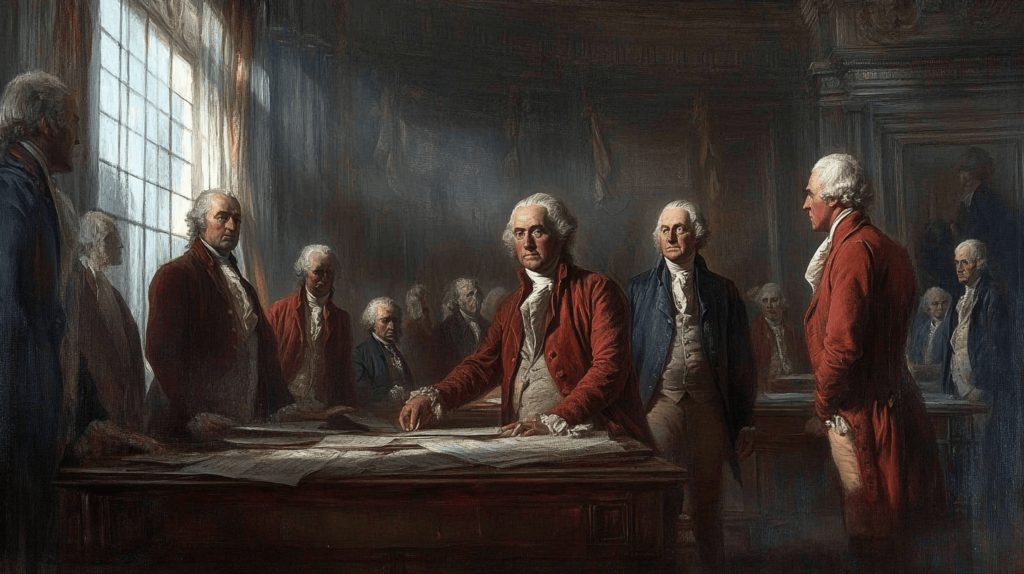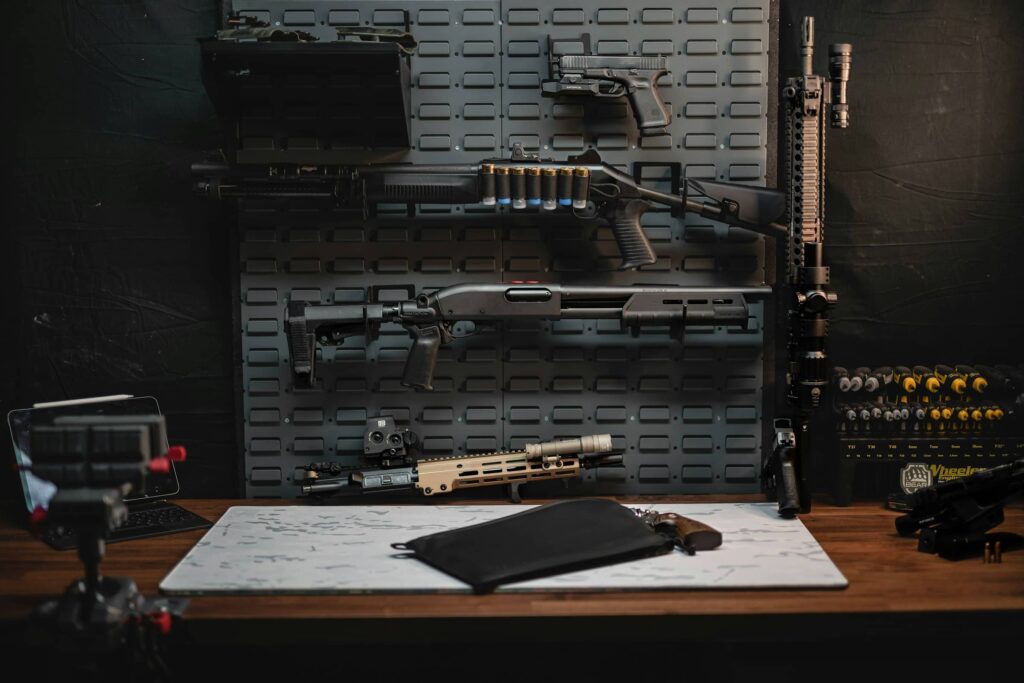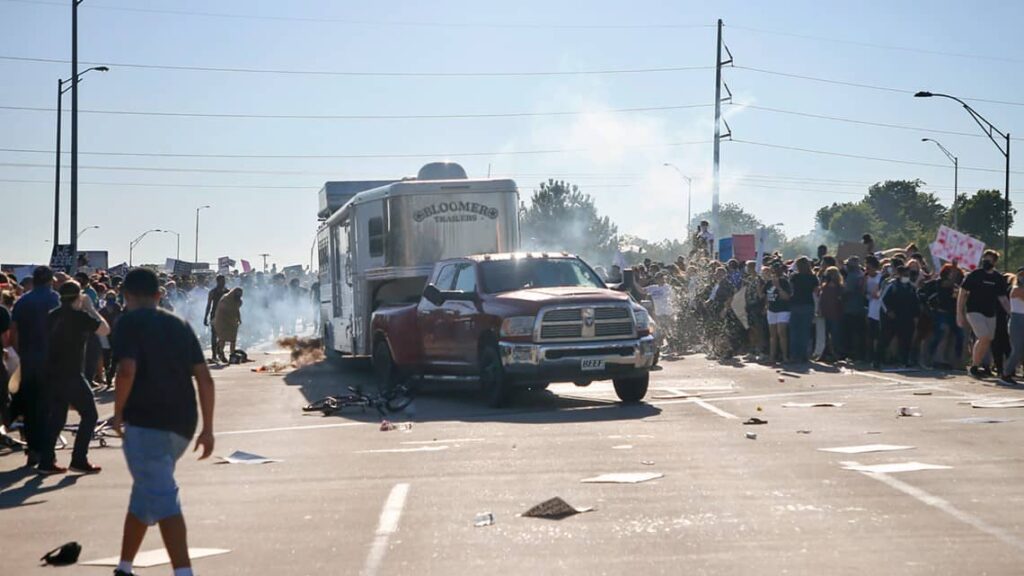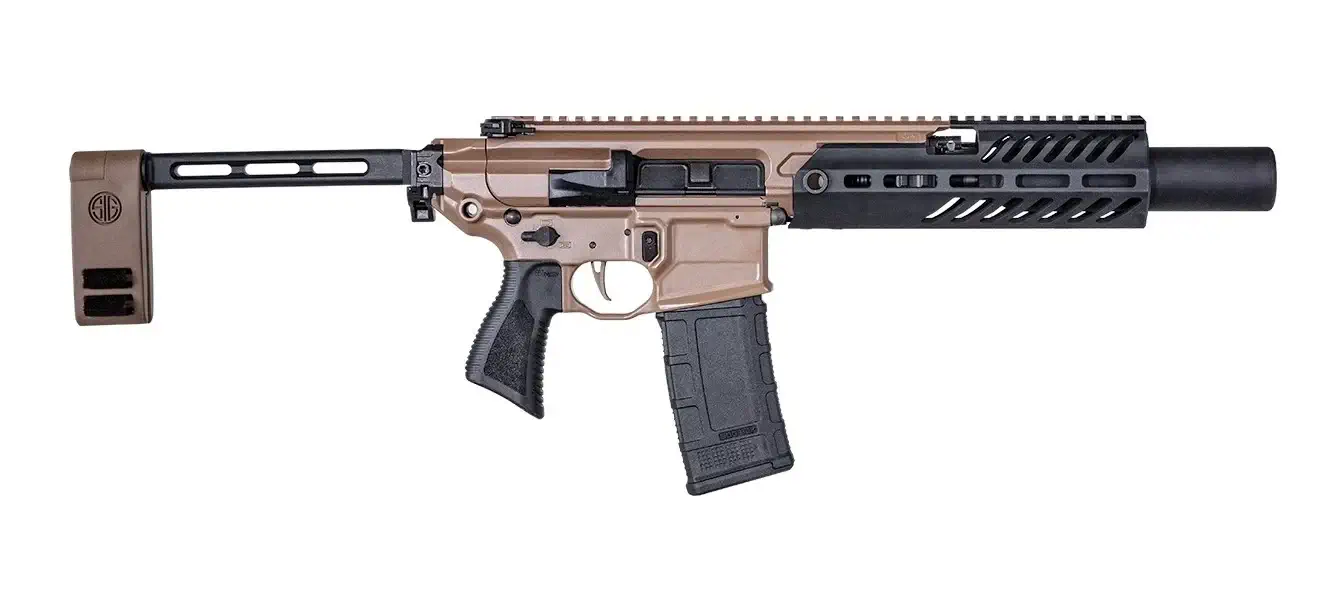
Should You Use a Suppressor on Your Home Defense Gun?
Table of Contents
Introduction
So you have a suppressor (or are thinking of getting one) and you are considering putting it on your nightstand gun. Is this a good idea or a bad idea? Could there be any legal repercussions if you have to use it to defend yourself? If I don’t put a suppressor on my gun, or don’t have one, what would be the next best option? What would be the best round to use with or without a suppressor?
I will try my best to answer these questions in this post while bringing up some considerations you should have based on your specific circumstances. I will include videos to share the thoughts of opinion leaders in industry (of taking out bad guys).
What is a Suppressor?
A suppressor, sometimes referred to as a “silencer” (thanks James Bond..), is a device attached to the barrel of a firearm that reduces the noise, muzzle flash, and recoil produced when the gun is fired. The suppressor’s effects on these three factors are unique to the suppressor and rifle you use.
For example, a SlencerCo Omega 300 with a muzzle brake end cap is going to have less recoil than a Surefire RC2 7.62.
Contrary to popular belief, suppressors don’t make a gun silent, but they significantly reduce the sound to safer levels, especially in confined spaces like a home. This reduction can help protect your hearing and keep you more aware of your surroundings during a home invasion.
The reduction in noise is due to the suppressor slowing down and cooling the propellant gases from the gunpowder, preventing the rapid expansion that creates the loud “bang.” However, the sound suppression depends on factors like the type of suppressor, caliber of the ammunition, and whether subsonic rounds are used
I highly recommend visiting Pew Science to learn more about suppressors and their impact on hearing.
Pros of Using a Suppressor for Home Defense
1. Hearing Protection in Enclosed Spaces
One of the most significant advantages of using a home defense suppressor is hearing protection.When firing a gun indoors, especially in a confined space, the noise can easily reach levels that cause permanent hearing damage. While you might not have time to put on ear protection in an emergency, a suppressor provides this safety benefit automatically.
2. Improved Situational Awareness
Suppressors reduce the auditory chaos during a home invasion, allowing you to remain more alert to what’s happening around you. This increase in home defense situational awareness could be crucial, helping you hear other potential threats or communications from family members or law enforcement.
3. Muzzle Flash Reduction
During nighttime or low-light conditions, the bright muzzle flash from an unsuppressed gun can temporarily blind you. A suppressor will help reduce the flash, giving you a tactical advantage by allowing you to keep your vision focused on the target.
4. Tactical Advantages
Suppressors can help with recoil management, allowing for faster follow-up shots and improved accuracy.
Cons of Using a Suppressor for Home Defense
1. Increased Weight and Length
One minor drawback of suppressors is that they add length and weight to your firearm. This can negatively affect the maneuverability of your weapon, especially in tight spaces like hallways or doorways. When every movement matters, the added bulk could slow you down.
2. Legal Considerations
Suppressors are regulated under the National Firearms Act (NFA), meaning you need to complete the suppressor tax stamp process and abide by NFA regulations to own one legally. This can involve a lengthy waiting period and paperwork. Furthermore, suppressor legality varies by state, so ensure you understand the suppressor legality by state and the legal implications of using one in a self-defense scenario.
3. Cost and Maintenance
Suppressors can be expensive, often ranging from a few hundred to over a thousand dollars, not including the tax stamp.
4. Back Pressure
Suppressors increase the back pressure in the operating system. For direct impingement firearms like AR-15s, this will cause your bolt to cycle harder and will blow back more gas towards you. A harder cycling bolt will cause more wear on your BCG and more gas in your face and eyes may reduce your ability to see downrange (often referred to as being gassed out). Though in a life or death scenario with the adrenaline dump. I doubt you will be thinking about some gas coming back in your face.
Legal Considerations of Suppressor Use in Home Defense
NFA Regulations and Tax Stamp Process
Under the NFA regulations, suppressors are classified as a Title II item. To legally purchase and own a suppressor, you must go through the suppressor tax stamp process, which involves submitting fingerprints, photos, and a $200 tax payment to the ATF. The approval process used to take months but now takes weeks. Still too long and too expensive.
State Legality
Suppressor laws vary significantly by state. While many states allow suppressors for home defense, some impose restrictions or outright ban their use. Definitely look up the specific laws in your state to avoid legal trouble. The American Suppressor Association provides an up-to-date map of suppressor legality by state.
Are Guns Really That Loud?
My Non-Scientific Opinion
If you have ever hunted before, whether that is duck hunting or deer hunting, you probably didn’t wear hearing protection. And I am willing to bet your ears were fine after your day in the blind or tree stand.
Obviously an unsuppressed AR pistol is going to be louder than a 12 gauge – but it isn’t going to make you go deaf!
I was not in the military but I have heard from veterans the term auditory exclusion. This is when your fight or flight response reduces the auditory stimuli your brain perceives. There are stories of 50 cal gunners engaging with the enemy and only realized they didn’t have ear protection until after the firefight.
SOF and SWAT teams intentionally train without hearing protection on occasion to learn to cope with the added stress.
I believe protecting your ears is less of a worry compared to being able to hear what the intruders are up to.
Here is what John Lovell has to say about suppressors on your home defense gun.
Alternatives to Suppressors for Home Defense
Electronic Ear Protection
If a suppressor isn’t a feasible option for you, electronic ear protection offers a great alternative. These devices amplify low-level sounds (like voices) while blocking high-decibel noises like gunfire. They provide excellent hearing protection in home defense situations.
I have and recommend the Howard Leight Impact Sport. They are affordable, last awhile, have a great battery life, and do a decent job at amplifying the noises you want to hear.
Muzzle Devices
While these devices don’t reduce noise, they can mitigate some of the other issues suppressors address, such as muzzle flash. Flash hiders may help lessen the fireball coming out of your 10.5” AR. However, some people like the intimidation factor of having an AR flamethrower.
Some muzzle devices to consider:
- Noveske KX5 Flash Suppressor – the boujee option that looks like a micro suppressor
- KAK Flash Can – the copycat and a ridiculously good deal (I have this on my 10.5″ AR pistol)
- Kaw Valley Linear Compensator – the most discrete and good value
- PWS CQB Compensator – the best looking in my opinion
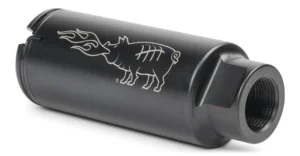

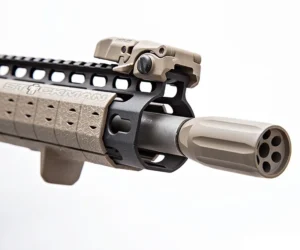
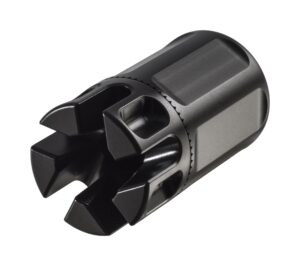
All these are going to do a good job at pushing the pressure and noise towards the target. I suggest picking one that fits your budget and aesthetics goals (gotta look cool doing it).
Popular Home Defense Calibers to Suppress
- 300 BLK Subsonic (< 12” barrel)
- The best choice if you are trying to be as quiet as possible while delivering knockdown power.
- 5.56 (< 14.5” barrel)
- Good choice for an all purpose rifle. It’s been getting the job done for decades.
- 9MM Sub or Supersonic
- A Pistol Caliber Carbine (PCC) is perfect for both men and women with low recoil and compact package.
Conclusion
Using a suppressor for home defense can offer several tactical advantages, from hearing protection to reduced muzzle flash. However, these benefits come with trade-offs. The main trade-off being able to scare all away would-be attackers after you rattle off 5 rounds of 5.56 in your house. Definitely will make them rethink their life choices.
Consider your personal circumstances, your home defense strategy, and the laws in your state before deciding to suppress your home defense firearm. And always remember, not suppressing your 300 BLK is a sin – they are meant for each other.
- The Right Gear for Upland Hunting - December 21, 2024
- How to Get a Suppressor in a Few Steps - December 5, 2024
- What is The Protection of Lawful Commerce in Arms Act? - November 15, 2024

